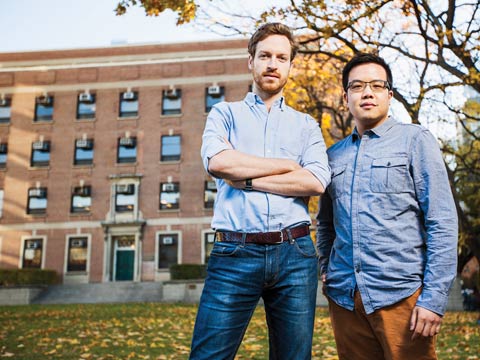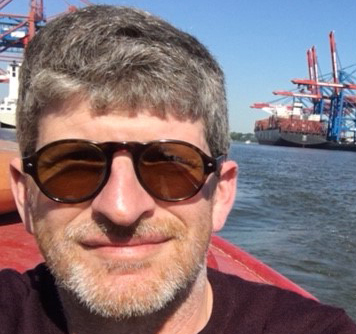While pursuing graduate work in chemistry, Leo Mui and Scott McAuley discovered that in most hospitals, infection control has become a serious issue: one in 10 patients now develops an infection while admitted for other medical problems.
Working from lab space at U of T’s Impact Centre – an accelerator for students in the natural sciences and engineering – Mui and McAuley formed a company, Lunanos, and began developing a new surface disinfectant. Soon, though, the plan changed. Cynthia Goh, the director of the Impact Centre, suggested that Mui and McAuley ask hospital infection control experts what specific problems they face. Based on these discussions, Mui and McAuley recast their idea, focusing instead on finding a way for hospital staff to determine if the thousands of pieces of moveable equipment – wheelchairs, IV poles, etc. – in every institution have been properly cleaned in a timely way. Mui says he and McAuley subsequently attended an infection control conference and talked to as many attendees as they could.
The result: a plan to develop a permanent, reusable sticker, that takes on a new colour for 12 hours after it’s been dabbed with hospital disinfectant. The adhesive markers, Mui explains, would be affixed to every rolling piece of equipment in a readily visible spot, revealing to hospital staff whether it has been cleaned.
Lunanos is now developing a prototype, which will be tested in hospitals in Toronto and the Philippines in coming months. Lunanos is one of 30 start-ups currently working out of the Impact Centre, which is outfitted with prototype equipment, wet labs and common areas where the principals with the different firms can exchange ideas. “There’s no other space at U of T where you can have a chemist and an engineer sitting side by side, developing the next product,” says Goh, adding that 70 ventures have come through the Impact Centre since it launched in 2010.
The program is aimed at aspiring entrepreneurs with solid scientific credentials – primarily grad students and postdocs who are conducting cutting-edge research. There are no timelines. “We don’t want to interfere with the research,” Goh says. “We go at the pace of the students.” Yet Goh stresses that applicants must demonstrate a willingness to learn about technology and entrepreneurship, including the necessity to shift gears. “You’re perpetually reassessing.”
Goh and the other Impact supervisors offer mentoring, technical and entrepreneurial advice, and contacts from their networks. Some companies working out of the Impact Centre have a handful of employees and some revenues, but none are yet profitable. Indeed, most operate like Lunanos – bootstrapping their way to commercialization. Mui and McAuley have secured grants and consulted with firms that make chemical disinfectants. And they are following Goh’s advice: “The only way you can understand the market,” she says, “is by getting out there.”
Learn more about how Lunanos aims to prevent hospital infections:






